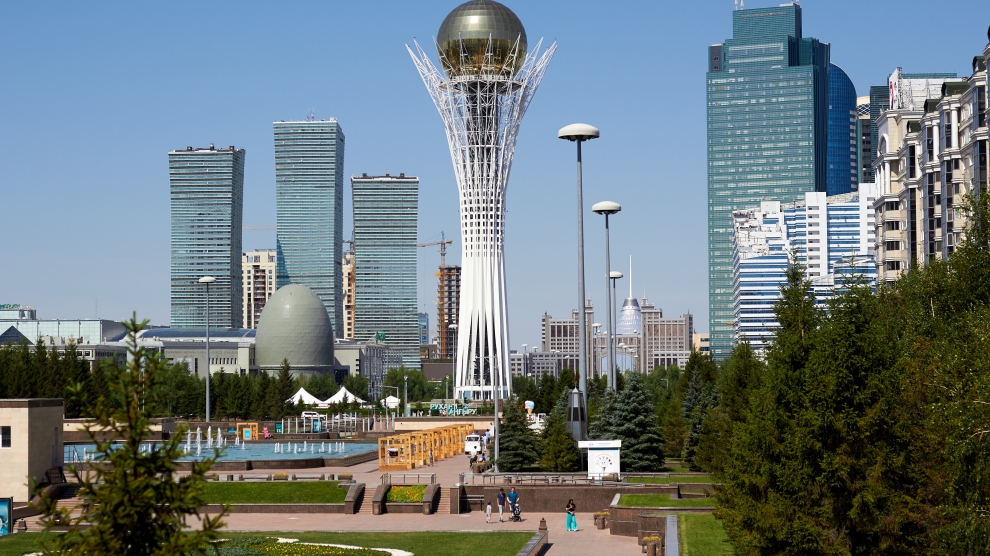For the first time since the late 1990s Kazakhstan’s economy is expected to contract by projected three per cent in 2020 before a moderate recovery of 2.5 per cent in 2021, according to the World Bank’s latest Kazakhstan Economic Update.
Although Kazakhstan’s GDP showed mild growth at 2.3 per cent in the first quarter of the year, economic activity weakened in the following months as commodity prices dropped, trade declined, and Covid-19 preventive measures slowed economic activity. Kazakhstan currently has 81,720 confirmed cases of Covid-19, and 585 people have died with the virus.
Consumer demand has shown moderate growth at 1.2 per cent, reflecting growing concerns over Covid-19 and restriction measures to combat the spread of the virus. Investment is expected to ease to one per cent annually, supported mostly by ongoing foreign direct investment into the oil and gas industry and residential construction. Supply disruptions and currency depreciation pushed up inflation to above the upper bounds of the national bank target range.
“The authorities acted early to contain the Covid-19 pandemic, and the accumulated fiscal buffers allow the government to introduce a relief package to mitigate the impacts of Covid-19 on the economy,” says Sjamsu Rahardja, senior country economist, World Bank in Kazakhstan. “Weak demand and oil prices, as well as the protacted pandemic expose significant risks to the economic outlook. Authorities may want to consider using the available resources to provide relief to the poor and vulnerable, protect productive assets, and introduce reforms to sustain economic recovery.”
A prolonged crisis is likely to increase poverty and can increase inequality in Kazakhstan. Preliminary estimates suggest that the poverty rate may rise in 2020 from a projected 8.3 to 12.7 per cent – equating to more than 800,000 additional people living in poverty. The shock to the labour market in Kazakhstan due to both the pandemic and the mitigation measures is expected to have severe implications for jobs, particularly in sectors that employ low-skilled workers.
The report also argues that Covid-19 has a negative impact on human capital development in Kazakhstan. Unequal access to quality education, especially during lockdown, can negatively impact human capital development for the poor.
School closures could result in learning loss of more than one-third of a school year and the impact could mean a decline in the Programme for International Student Assessement (PISA) points. As most students in the country currently perform around the threshold for functional literacy and assuming some will lose out more than others, the estimates suggest that the percentage of students performing below functional literacy will increase by three percentage points (from 64 to 67 per cent).
“The impact of Covid-19 on education and learning losses will have a decades-long impact on the economy by an estimated 2.9 per cent, amounting to an overall economic loss of up to 1.9 billion US dollars every year”, says Jean-Francois Marteau, World Bank country manager for Kazakhstan. “A focus on improving access to quality education, including distance learning, would be important to prevent a decline in the quality of human capital, especially among Kazakhstan’s low-income population.”
The report concludes that under the risk of a prolonged slump in the global oil market, Kazakhstan’s pathway for a resilient recovery may focus on strengthening the effectiveness of public administration and services, including the use of e-platforms to deliver key public services, better tax administration, and a mechanism to review and redeploy fiscal resources toward better state programs.
A renewed emphasis on reforms in the logistics, digital telecommunications, and financial sectors could help the overall private sector explore new opportunities.
—
Unlike many news and information platforms, Emerging Europe is free to read, and always will be. There is no paywall here. We are independent, not affiliated with nor representing any political party or business organisation. We want the very best for emerging Europe, nothing more, nothing less. Your support will help us continue to spread the word about this amazing region.
You can contribute here. Thank you.




